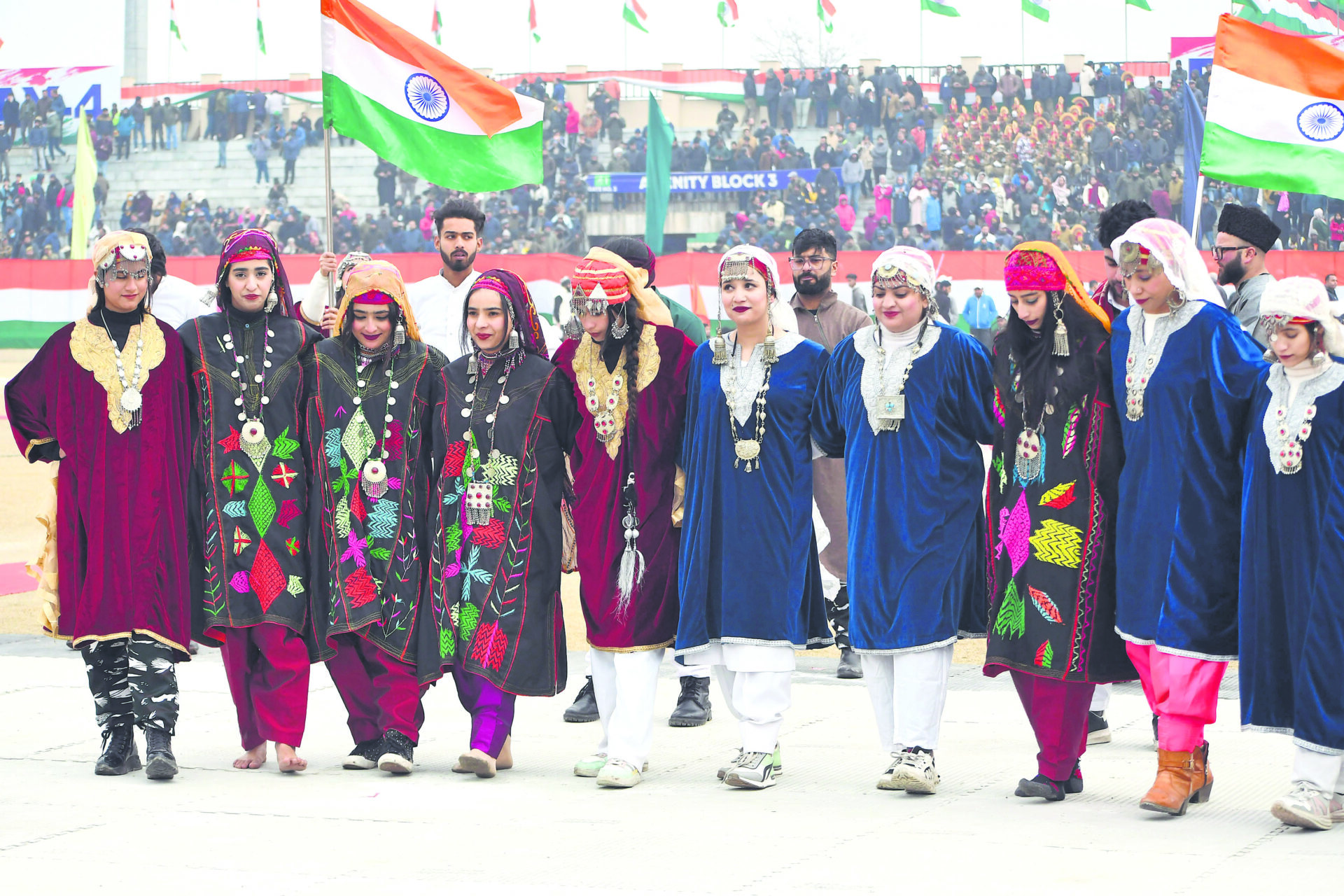Overall, the nation has done a phenomenal job as the world’s largest democracy.
Reflecting on the achievements of the Indian Republic on the 75th Republic Day, it can safely be declared that the nation’s biggest achievement is the deepening and flowering of our democracy. When the Indian Constitution came into effect in 1950, the world was dealing with the consequences of World War II and colonialism. India was impoverished and bore the deep scars of exploitation. Not many observers expected democracy to last in the nation, but here we are 75 years later, the world’s largest, most vibrant democracy.
Socio-economic development and political power have reached all sections of the society, including the bottom 40%. Economic liberalization in 1991 has accelerated economic growth, from Rs 5.32 lakh-crore in FY91 to Rs 296.57 lakh-crore in FY24—a 33-year run at 13% CAGR! A feat unparalleled in India’s history. Significant increase in infrastructure spending, accelerated savings and investments in the financial sector, increase in manufacturing and production, and population-scale technology-based inclusion initiatives are driving growth this decade. India is now the fifth-largest economy in the world, by nominal GDP, and is projected to soon be the third largest in a few years.
While reflecting on the achievements reminds us of how far India has come, the shortcomings map out the journey ahead. One of India’s most gaping shortcomings is the lack of justice, which is delayed for large swathes of the population who cannot afford quality representation. It is estimated that 250,000 under-trials are in prison waiting for their moment in court, and having already served more than half the term they would have to for the maximum sentence of the crime they are accused of. There are cases of innocent people languishing in jail for 15-20 years and then released due to lack of evidence. Corrupt politicians have been able to continue their fraudulent activities because the justice system has been slow to prosecute. Judicial capacity must be quickly built up, particularly in the lower judiciary. India has hardly 21 judges/million population, whereas the optimum number is 100. Justice is the bedrock of a civilized society, and India must ensure it builds this bedrock immediately.
The lack of a common civil code and law is evidently dividing the country, along the fissures of religion and caste. For 75+ years, reservation has been the tool to ensure all social groups get equal opportunities. While reservation has certainly worked in increasing the participation and inclusion of hitherto excluded groups, the emergence of a creamy layer that is dominating the benefits of reservation is undeniable. Moreover, the lack of a common civil code is unjustly affecting certain sections of society, for example, Muslim women, constituting 8% of the population. The promise of equality embedded in the Constitution must include complete gender equality. While Hindu women enjoy most rights as their male counterparts, Muslim women do not due to the prevalence of differential religious laws that unduly benefit Muslim men. A uniform civil code that treats all citizens equally regardless of gender, religion and caste is the need of the hour.
Police reforms is another urgent necessity. The police force seems firmly set in its colonial imperialistic origins, where power has shifted from the former colonial masters to the political class. Numerous cases of police brutality have arisen—beating peaceful protesters with lathis or beating up under-trials in prison. Police reforms which shift the imperative onto protecting citizens and upholding the law are extremely important, and will drive the scenario where the police are held in esteem and crucial for a thriving Republic.
In the financial sector, the banking system is in good shape with robust capitalization, and retail participation in the stock market is accelerating. While per-capita income is steadily increasing and citizens are finding numerous new ways of economic growth, tax terrorism and tax disputes also continue to grow. The quantum of tax disputes has increased from Rs 4.5 lakh-crore in 2014 to around Rs 12 lakh-crore in 2023. More powers have been given to tax authorities to go after citizens without requiring them to first gather the necessary evidence and establish reasonable doubt of tax evasion. Tax officials must be held accountable for wrong assessments and tax disputes, and reforms must be enacted to curb their arbitrary powers.
On the social front, India is doing reasonably well in education. Almost all children are in school, and the nation must now focus on improving quality. 28% of young people in the age group of 18-23 years are in college, and initiatives are required to increase this to 50% in a decade. India is seeing steady progress in improving access, equity and affordability of quality education. At the other end, however, it is necessary to institute an adequate social security net for senior citizens. It is estimated that 13 crore Indians are over the age of 60 today, projected to increase to 20 crore by 2030. Many of them live poorly due to the lack of a pension system or access to healthcare. A comprehensive social security net will ensure they live a life of dignity.
All five points are essential to upholding India’s democratic values, and implementing them swiftly will hold the country in good stead as it rises through the global economic order. Overall, the nation has done a phenomenal job as the world’s largest democracy hosting the world’s largest population with the biggest promise. While India has many more miles to go with several large reforms pending, Indians can celebrate the 75th Republic Day with a sense of satisfaction and look forward to the future with optimism.
T.V. Mohandas Pai is Chairman, Aarin Capital and Nisha Holla is Technology Fellow, C-CAMP.

